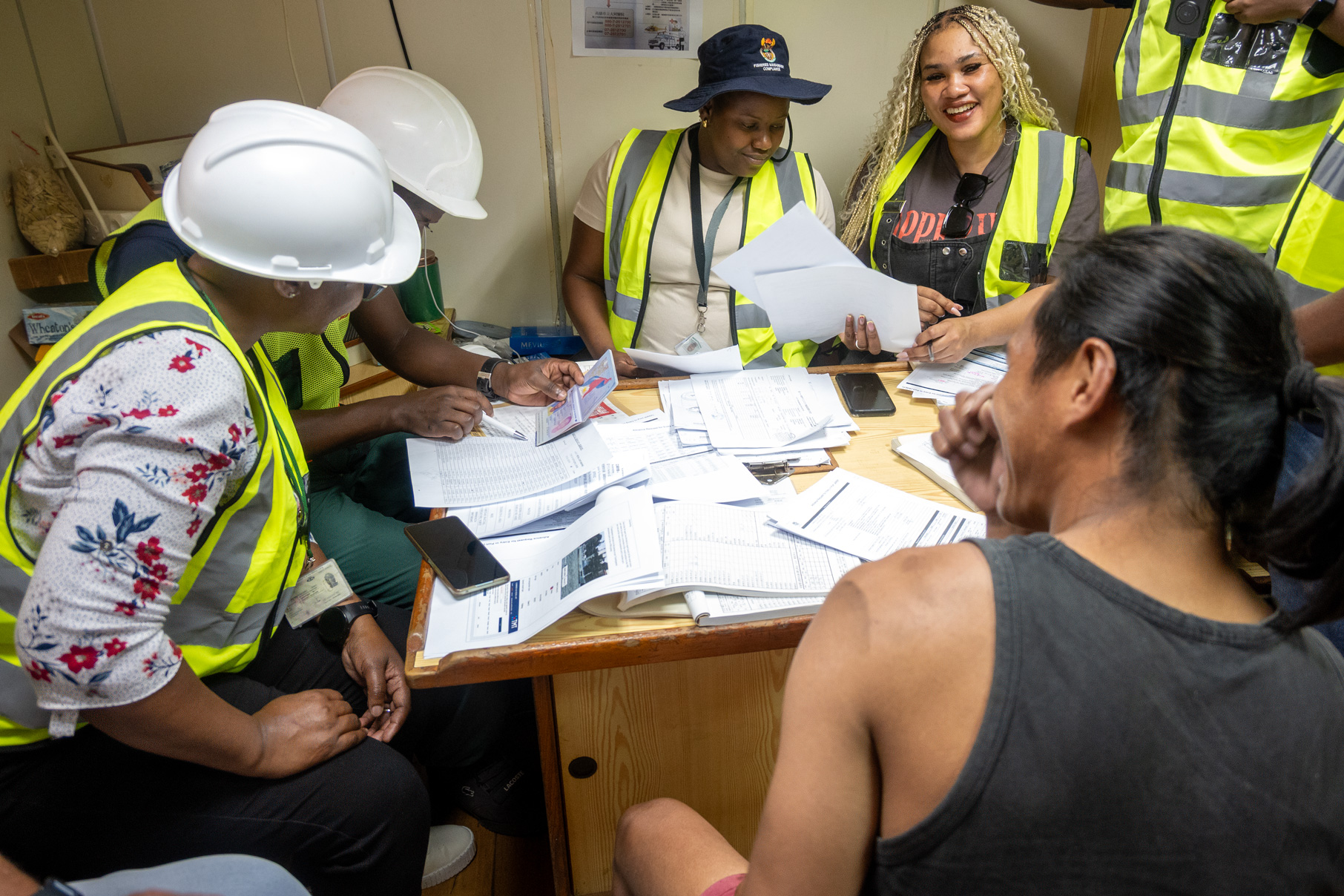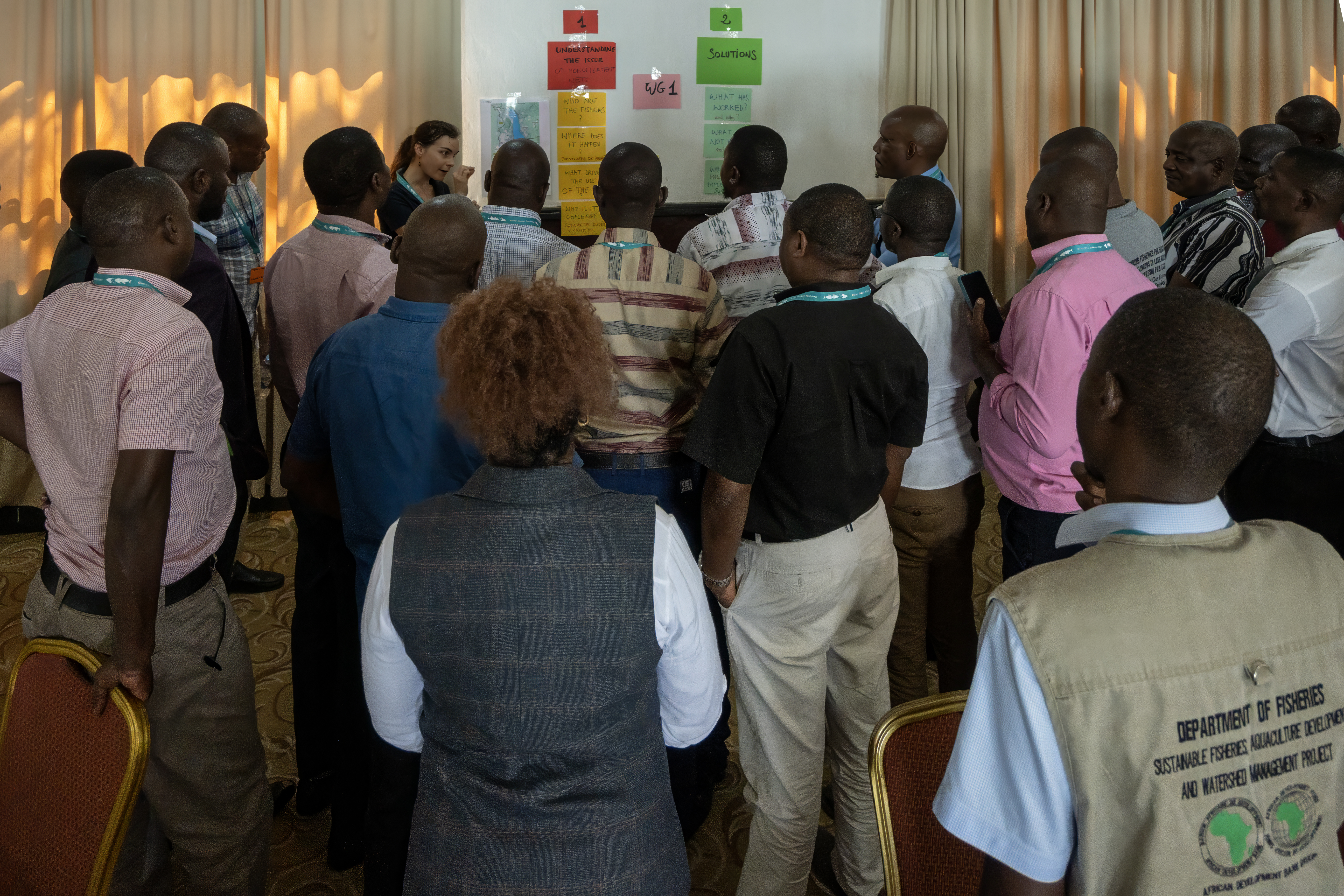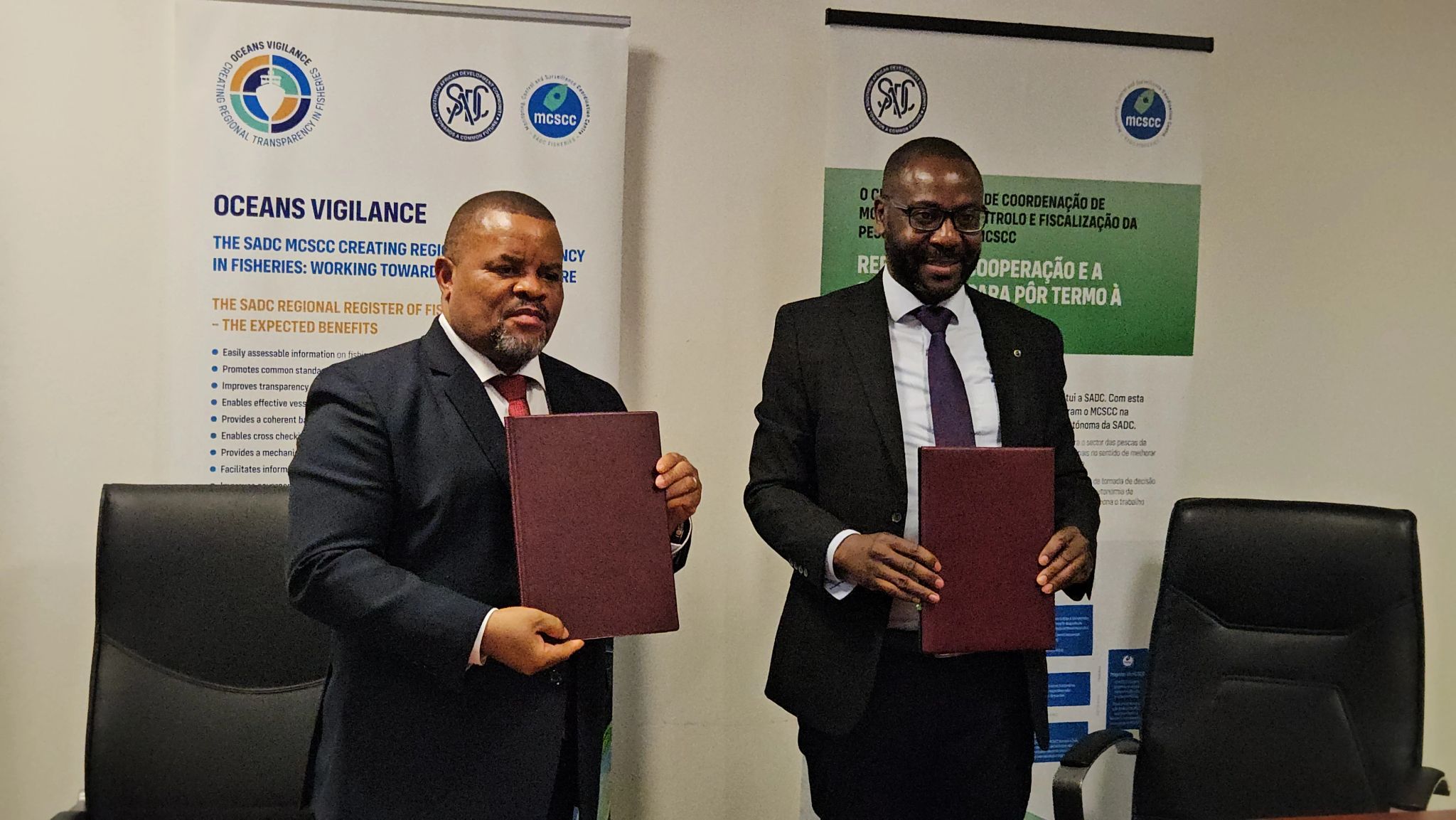Dialogue 3: With Dr. Paubert Tsimanaoraty Mahatante – The Minister for Fisheries and Blue Economy of Madagascar
The Dialogue Series – Discussions with our leaders and champions
Antananarivo, Madagascar – April 2025

Together to promote a thriving and inclusive blue economy
“Regional cooperation is an important strategy in our national action plan to combat illegal, unreported and unregulated (IUU) fishing. We need regional cooperation to exchange and validate information on fishing operations, which helps us make decisions that have an impact on our national fishery resources,” said Dr. Paubert Tsimanaoraty Mahatante, Madagascar’s Minister of Fisheries and the Blue Economy. Speaking with Dr. Alexander Shula Kefi in an interview conducted for the Southern African Development Community (SADC) Monitoring, Control and Surveillance Coordination Centre (MCSCC), the Minister explained why Madagascar has made transparency and regional cooperation the foundation of its fisheries policy.
“Madagascar is an island, and our people depend on the sea for survival,” the Minister noted. More than 1.5 million Malagasy belong to fishing communities, with some, like the Vezo people of the southwest, relying almost entirely on fishing. “Fishing is central to their way of life, and it is essential for our food security.”
Fisheries provide nutrition, jobs, and income for millions of people. They also connect directly to the government’s development strategy, linking food security and poverty reduction with sustainable blue economic growth. Protecting fisheries resources is therefore essential.
One of the priorities of the Minister for this: ensuring that the fishing effort in Madagascar’s waters is commensurate with the availability of fishing resources, ensuring healthy stocks for the long-term benefit of the population. This entails a better control of fishing activities in Madagascar’s Exclusive Economic Zone (EEZ), with non-compliant fishing vessels as the first target to achieve this objective. “We need to make a difference between good and bad vessels”, the Minister said. “We only want to keep good vessels in our waters”. The Minister wants to know who is operating in Madagascar’s waters, also to make sure that no foreign fishing vessel is allowed to target fish that would normally be intended for the local population. “The fish is for nutrition, for food security, it is our duty to secure this – this is not negotiable”. For this, Madagascar’s government is a strong promoter of the Regional Register of Fishing Vessels (RRFV), a key tool of the MCSCC to identify fishing vessels at a higher risk of engaging in illegal activities, and to act against them. Madagascar already publishes the list of all registered and fishing vessels on the Ministry’s website. Yet, in the context of global and complex fishing activities, national actions alone are not enough to combat IUU fishing. “We need all the SADC countries to come and act together, and the RRFV is one of the tangible measures that we really need to put in place”, the Minister said.
Madagascar has also made it a priority to strengthen its monitoring, control and surveillance (MCS) activities, with 25 patrolling vessels and 02 maritime drones dedicated to combatting IUU fishing. The Minister himself is able to monitor fishing vessels from his office. Through remote monitoring technology, he can observe daily movements of fishing vessels through their automatic identification system (AIS). “The biggest challenge to this is when fishing vessels deliberately switch off their systems to avoid detection”. As one solution to this, Madagascar receives satellite data from partners in the region. “This is why regional data sharing is important. Regional cooperation makes this possible”. It is to harness the full potential of the MCSCC that Madagascar signed the Charter Establishing MCSCC in 2022 and since then is actively engaged in accelerating its operationalisation.
Regional sharing of information is all about transparency of fishing vessel activities, which often involves cross border operations. Transparency is the principle that underpins Madagascar’s commitments. Madagascar is part of the Fisheries Transparency Initiative (FiTI), through which the country is committed to making all fisheries-related information public. “Everything is online and shared with our citizens. Transparency builds confidence at home and abroad, and it attracts investment in our blue economy”, he said.
As Madagascar is taking over the Chair of SADC, the Minister confirmed Madagascar’s commitment to strengthening regional fisheries management.
For Minister Dr.Mahatante, leadership is about credibility, good governance and clear communication. “We are opening doors, building alliances, and implementing a national Blue Economy strategy aligned with the African Union. Now is the time for SADC to act together, to protect our fisheries, and to secure our shared blue future”.
THE DIALOGUE SERIES: DISCUSSIONS WITH OUR LEADERS AND CHAMPIONS
The Southern African Development Community (SADC) prioritises fighting illegal, unreported and unregulated (IUU) fishing to protect the region’s people, waters and economy from the devastating impacts of illegal fishing. The SADC is coordinating and driving regional monitoring, control and surveillance (MCS) collaboration through the SADC MCS Coordination Centre (MCSCC), which was established in 2023. The establishment of the MCSCC is a long-awaited and historical milestone for the SADC fisheries sector. It is the culmination of over two decades of regional commitments to improving cooperation and promoting responsible and sustainable use of all fisheries resources in the SADC region – both inland and marine resources. The priority is now on operationalising the MCSCC, for the benefit of all Member States and their population. To sustain these commitments and support those next steps, the MCSCC has engaged in a series of dialogues with our leaders and champions to share the voices of those supporting and leading the changes that we need to make to protect our fisheries and to move towards our common future.
The dialogue series was made possible thanks to the support of the Waterloo Foundation and Oceans Five through the Oceans Vigilance project of the MCSCC.
For more updates, stay tuned on our website and social channels.

Follow us on our social media pages


